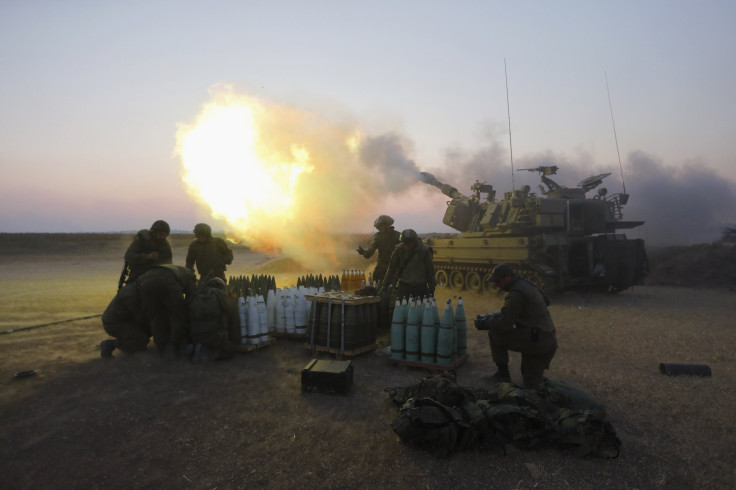In Israel-Hamas Conflict In Gaza, No Clear Target Set For Victory

Two weeks into the conflict between Hamas militants and the Israel Defense Force in Gaza, more than 700 Palestinians have been killed, close to 150,000 displaced, and 32 Israeli soldiers killed. Despite the increasing number of casualties, Israeli Prime Minister Benyamin Netanyahu said at a cabinet meeting Thursday that Israel would continue its operation in Gaza with “full force.”
According to United Nations Refugee and Works Agency (UNRWA) officials, Israel targeted Thursday a school used as shelter, killing 10 people and wounding more than 100. As the violence continues to escalate in the Gaza Strip, both sides are left wondering when the war will end -- and on whose terms.
When Israel began a groind invasion of Gaza on July 17, the IDF said it was going to target Hamas’ smuggling tunnels and rocket stockpiles, a similar goal to its past missions in the Gaza Strip. Since then, the IDF has claimed that it has uncovered and destroyed dozens of “terror tunnels”, and struck hundreds of “terror targets." Yet Israel continues its campaign and Hamas has fired thousands of rockets into Israel, refusing to acknowledge any cease-fire agreement that does not allow for the release of Palestinian prisoners and an end to the Israeli blockade of Gaza.
Both sides have indicated that there is no clear definition or line that will halt the fighting.
Israel’s entrance into Gaza marked the third time it has invaded Gaza in seven years. Each time, the IDF has said it would target tunnels and rockets in the attempt to defang Hamas, a movement whose stated goal remains the annihilation of Israel -- but after each invasion, Hamas rebuilds tunnels and imports more rockets. Some Israeli politicians have argued that brief invasions of Gaza do not work, and that Israel should stop the fighting and once again occupy the Strip to establish long-term peace.
“When the Israelis left Gaza, I think there was optimism that you could trade land for peace,” Kori Schake, a research fellow at the Hoover Institution, said. “But the reverse has happened. The way that Hamas governed Gaza has shattered that belief in Israeli domestic politics and it weakens the peace camp in Israeli politics.”
Yehuda Shaul, a member and co-director of Breaking the Silence, a group of former IDF soldiers advocating for an end to the invasion, said the IDF’s vision of success in Gaza is “blurred.”
“There is no winning,” Shaul said. “It has been 47 years and nothing has changed. We are not addressing the root of the problem -- the occupation.”
Others argue to continue forging ahead with the “mowing the grass” campaign until the IDF has occupied the entire strip.
The former head of Israel’s internal security service Shin Bet, Yuval Diskin, said in an article published in Yedioth Ahronoth that "the government of Israel has the option of continuing and even deeming the ground operation right into the populated areas where the Hamas leaders are hiding and where the rocket launchers are hidden underground. Such effective military pressure will considerably reduce, and even end, the firing of rockets."
But that scenario seems unlikely given Hamas’ ability in the past to build up its weapon stockpiles. According to Schake, Hamas firing rockets into Israel will only invite more Israeli bombardments and will make a "two-state solution even harder."
© Copyright IBTimes 2024. All rights reserved.





















